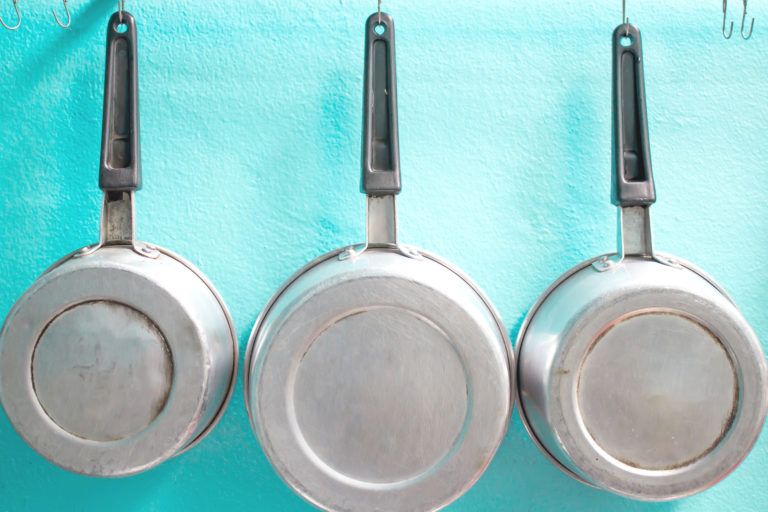
Quick Tips
Have you ever stared at your aluminum appliances or fixtures and thought they once glistened like a beacon of modern design—but now resemble scraps from a post-apocalyptic junkyard? Whether it’s aluminum cookware dulled by stubborn stains, patio furniture that’s lost its luster, or window frames clouded by grime, learning How to Clean Aluminum can restore its brilliance and extend its lifespan. This guide walks you through 5 slick steps to get your aluminum surfaces looking as good as new, with a touch of dark humor along the way.
Why Clean Aluminum?
Unlike iron, aluminum doesn’t rust in the traditional sense, but it does oxidize. Over time, oxidation combined with accumulated grease, dust, and fingerprints can turn your once-shiny surfaces into lackluster relics. Left unchecked, these imperfections not only mar the aesthetic of your home but may also affect the material’s durability. Clean aluminum not only looks better but is also easier to maintain—ensuring your investment in modern design endures.
General Supplies You’ll Need
- Mild Dish Soap: A gentle cleanser that won’t damage the aluminum.
- White Distilled Vinegar: Cuts through grease and oxidation without harsh chemicals.
- Warm Water: Helps loosen grime effectively.
- Microfiber Cloths: Non-abrasive cloths that prevent scratching.
- Non-Abrasive Sponge or Soft-Bristle Brush: For stubborn spots needing extra attention.
- Aluminum Polish (Optional): For restoring that extra shine once the surface is clean.
Step-by-Step: How to Clean Aluminum
1. Gather and Prepare Your Tools
Start by assembling your cleaning supplies. Mix warm water with a few squirts of mild dish soap in a bucket. This basic solution is your first line of defense against everyday grime. If you’re cleaning aluminum that’s part of an appliance or outdoor fixture, consider removing detachable parts and turning off nearby electronics. Think of this step as priming your battlefield—you need the right tools to fight years of neglect.
2. Pre-Treat and Loosen the Grime
Gently wipe down the aluminum with the soapy water using a microfiber cloth. Work in small sections and avoid aggressive scrubbing, as aluminum is softer than many other metals. For surfaces with heavy buildup—like a cooking range hood or outdoor furniture—soak a non-abrasive sponge in your solution and press it against the surface to loosen the residue. For more detailed techniques on safely pre-treating aluminum surfaces, check out The Spruce’s guide on cleaning aluminum cookware.
3. Wipe Down Thoroughly and Rinse
After your initial treatment, rinse away the loosened dirt and soap residue. Dampen a clean microfiber cloth with warm water (no soap) and wipe down the surface, using gentle circular motions to lift off any remaining debris. A thorough rinse is crucial because leftover soap can attract more dirt, eventually dulling your aluminum further.
4. Restore the Shine with Vinegar and Polish
Now, mix equal parts white distilled vinegar and water in a spray bottle and lightly mist your aluminum surface. The vinegar’s acidic nature dissolves any residual oxidation or greasy films. Allow the solution to sit for a few minutes before wiping it away with a fresh cloth. For additional guidance on using vinegar to brighten aluminum surfaces, Good Housekeeping recommends this approach. If your aluminum still appears lackluster, apply an aluminum polish according to the manufacturer’s instructions and gently buff the surface until a gleam emerges.
5. Final Touches and Ongoing Maintenance
Once your aluminum is spotless and gleaming, dry the surface thoroughly with a clean towel to prevent water spots and further oxidation. For outdoor aluminum furniture or fixtures, you might consider applying a thin protective wax coating to fend off future grime. Establishing a regular cleaning routine—ideally every couple of weeks for frequently used items—will help maintain that bright finish. Regular upkeep not only preserves the visual appeal of your aluminum but also keeps it functional for the long haul.
Additional Tips and Preventive Measures
- Regular Dusting: Aluminum surfaces naturally attract dust and fingerprints, so dusting every few days helps keep buildup at bay.
- Avoid Abrasive Cleaners: Steer clear of harsh chemicals or abrasive pads that can scratch the surface and accelerate oxidation.
- Mind the Environment: For outdoor aluminum, rain, salt, and pollution can speed up oxidation; a protective wax coating can be a game changer.
- Coordinate with Other Surfaces: Just as your hardwood floors benefit from regular cleaning, maintaining a schedule for your aluminum surfaces will keep them looking pristine.
When and Why You Should Clean Aluminum
Keeping aluminum surfaces clean isn’t just about aesthetics—it’s about preserving the functionality and longevity of the material. Whether it’s aluminum cookware that affects your cooking performance or outdoor fixtures that enhance your home’s curb appeal, regular cleaning prevents minor issues from becoming major headaches. With routine maintenance, your aluminum can continue to shine and perform, even in the face of everyday grime.
Common Aluminum Cleaning Missteps
Avoid these pitfalls to keep your aluminum safe:
- Overusing Abrasives: Avoid steel wool or rough sponges that can leave scratches.
- Skipping the Rinse: Not rinsing off soap residue turns your clean surface into a magnet for dirt.
- Excessive Use of Acidic Cleaners: While vinegar is beneficial in moderation, too much can etch the surface over time.
- Inconsistent Maintenance: Sporadic deep cleans are less effective than regular, gentle upkeep.
Enjoy Your Revitalized Aluminum
Imagine the satisfaction of watching your once-dull aluminum fixtures transform into gleaming highlights that catch the light perfectly. Whether it’s the countertop in your kitchen, sleek window frames, or outdoor patio furniture, clean aluminum brings a modern, stylish edge to your space. Regular maintenance not only preserves this visual appeal but also reinforces the durability of your aluminum. With these 5 slick steps, you now have a foolproof method to keep your aluminum surfaces looking fresh and new.